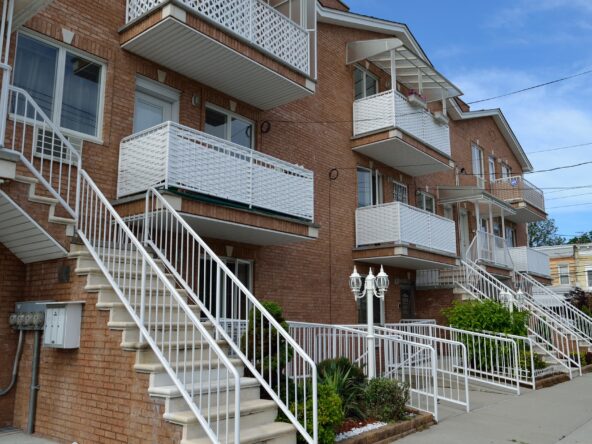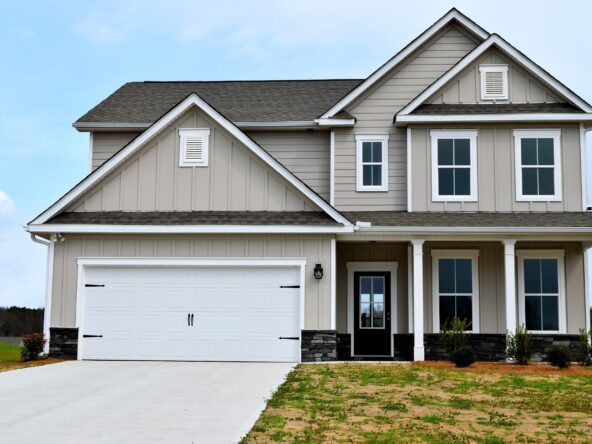Buying a home is an exciting, yet complex process. Calgary Home Select [ CHS] can help you throughout the entire process, but where do you even start? Our guide for home buyers, whether you’re a first-time home buyer or repeat buyer, has all the answers you need to gain confidence, not to mention excitement.
- Preparing to Buy a Home
- Looking for Homes
- Making an Offer
- Closing on a Home
Preparing to Buy a Home
Make sure you’re ready
Buying a home is likely the largest financial move you’ll make in your life and being prepared means understanding how much you can afford. Before you begin making your list of wants and needs, try our affordability calculator to get an idea of your potential price range.
Ready for next steps? —where to start, how to get pre-approved for a mortgage, government incentives, finding a mortgage broker, additional home-buying costs, and more.

Buying a home through a real estate marketplace technology platform can offer several advantages, including access to a wide range of listings, convenience, and efficiency. Here are some tips for homebuyers using such platforms:
Set Your Budget: Determine your budget for purchasing a home, taking into account factors such as your income, savings, and potential mortgage pre-approval. This will help you narrow down your search and focus on properties that align with your financial goals.
Define Your Preferences: Make a list of your must-have features and preferences for your future home, such as location, size, amenities, and style. This will help you use the search filters effectively on the platform to find properties that meet your criteria.
Research Neighborhoods: Use the platform’s mapping features to explore different neighborhoods and understand factors like school districts, commute times, local amenities, and property values. Pay attention to neighborhood trends and developments that may impact your decision.
Stay Updated: Set up alerts or notifications on the platform to receive updates on new listings, price changes, and market trends in your desired areas. Being proactive and staying informed can give you a competitive edge in the homebuying process.
Schedule Viewings: Take advantage of virtual tours and photos provided on the platform to narrow down your options. Once you’ve identified potential properties, schedule in-person or virtual viewings to get a better sense of the home’s condition and suitability for your needs.
Ask Questions: Don’t hesitate to reach out to the seller or their agent through the platform’s messaging or contact features if you have questions about a property. Clarifying any doubts upfront can save you time and prevent misunderstandings later on.
Conduct Due Diligence: Before making an offer, conduct thorough due diligence on the property, including reviewing property disclosures, inspection reports, and neighborhood data. Consider hiring a professional inspector or real estate attorney to assist you in the process.
Negotiate Wisely: Use the platform’s negotiation tools to submit offers and negotiate terms with the seller or their agent. Be prepared to negotiate on price, contingencies, and other terms to reach a mutually beneficial agreement.
Secure Financing: If you haven’t already done so, work with a mortgage lender to secure financing for your home purchase. Provide the necessary documentation and follow through with the lender’s requirements to ensure a smooth closing process.
Review Contracts Carefully: When you’re ready to move forward with a purchase, review all contracts and documents related to the transaction carefully. Ensure that you understand the terms and conditions before signing and seek professional advice if needed.
By following these tips and leveraging the features and resources available on the real estate marketplace technology platform, you can navigate the homebuying process with confidence and find the perfect home for your needs.
- determine if you’re eligible for government homeownership incentive programs;
- assess mortgage products and different types of lenders to see what fits;
- get a feel for the neighbourhood you desire by sharing details about nearby schools, parks, and other amenities;
- find the right home to suit your needs;
- negotiate a purchase price and contract terms, and direct you through complex contracts;
- find qualified industry professionals, such as real estate lawyers, home appraisers and home inspectors; and
- plan for closing costs and other related expenses.
Decide what you want
Before starting your home search, you need to determine what kind of home you’re looking for, where you want to live, which home features are must-haves, and what ones you can be flexible about. Calgary Home Select is a local expert who can help you find the home that suits your lifestyle and needs.
Where are you looking to buy a home?
Home types and affordability will look different depending on where you’re looking to buy. The Canadian housing market is not one-size-fits all. Calgary Home Select will have a finger on the pulse of the local real estate market in the region of your choosing. Generally, you can expect home prices in urban and suburban areas to be higher, while smaller cities, towns and rural areas may offer more moderate home prices—with exceptions, of course.
What type of home do you need?
There are many types of properties you can call home. Here are a few of the most common types:
- Single-family detached—as the name implies, the home is freestanding and not attached to any other homes.
- Semi-detached or linked—these are two distinct houses (with separate owners and lots) that are built side-by-side and share a common wall.
- Duplex—a building on a single lot, but it’s zoned for two occupants (each with independent access).
- Townhome—also known as townhouses or row unit, a townhome is identified as units featuring a common style and joined in a row. They usually share common walls on both sides.
- Condo—with this type of property, you own 100% of your unit and a share of the common areas. Common areas can include the necessary plumbing, electrical systems, hallways, and elevators. They may also include amenities like a private gym or pool. On top of the mortgage and property taxes, condo owners also pay a monthly fee to operate and maintain the common areas.
Considering a condo? You may be interested in:
- Should You Buy a House or a Condo? What to Consider
- Condo Fees and What They Cover
- 5 Questions to Ask a Condo Board Before Buying
Are you considering a new build? Learn more about new builds:
What features do you need?
Consider your needs and wants in a home. Below are some common features most Canadians consider.
Indoor:
- number of bathrooms;
- number of bedrooms;
- number of levels;
- fireplace(s);
- separate dining room;
- separate family room;
- air conditioning;
- walk-in closet(s); and
- move-in ready
Exterior:
- size of yard;
- swimming pool;
- landscaping and maintenance;
- lot size and location- for example, proximity to neighbours (for detached homes), or corner lot;
- siding and roofing;
- number of windows; and
- direction the home faces.
Which neighbourhood(s) should you consider?
Your dream home isn’t just about its rooms and features. Choosing your neighbourhood is equally as important when deciding whether a home is right for you. Remember: location, location, location! Here are some things to consider when deciding what neighbourhoods to look at:
- Commute time—What’s the proximity to your place of work, schools, daycare?
- Transit options—Is the area car friendly? What’s the availability of transit, walking paths, and bike paths?
- Amenities—What’s the proximity to grocery stores and other shops and services?
- Atmosphere—What are the demographics of the area? Is it more vibrant, or quiet?
Looking for Homes
As you begin your home hunt, you will likely view many properties—on calgaryhomselect.ca and in person at open houses. Now that you have an established relationship with your CHS, they will help you narrow your search, saving you time, effort and hassle.
Making an Offer
Once you’ve found the perfect home, you’ll need to submit an offer.
The offer
An offer is submitted through Digital purchase agreement on calgaryhomeselect.com
Home offer terminology
- Purchase price: This is what you’re willing to pay for the home.
- Deposit: The deposit is the cheque you write to the seller or the seller’s representative which can contribute to your down payment. This is your way of saying, “my offer is serious.” . Learn more about deposits and down payments.
- Chattels and fixtures: Moveable items like microwaves and window blinds are chattels. They’re not automatically included in the sale, but sellers will often include them to sweeten the deal. Fixtures are permanent improvements to a property, like central air conditioning, installed lighting and wall-to-wall carpeting. Fixtures are assumed to be included in the sale of the home. Be sure you know which chattels and fixtures are included with the house.
- Irrevocability of the offer: This is the length of time you give the seller to consider your offer, usually less than 48 hours.
- Completion date: The day you take possession of your home.
- Clauses particular to this agreement: Every transaction is unique, and you may want to add conditions that are important to you, such as a home inspection.
- Conditional offer: This means your offer is only valid if the seller meets conditions set out by the buyer, or vice versa.
Getting a home inspection
A home inspection is usually a conditional term of the home purchase, set by the buyer or the seller. It’s highly recommended to ensure the home inspection is a condition of your offer. Hiring a professional to visually inspect the home for defects and overall condition typically costs between $300 and $600 but can save you from unpleasant surprises and long-lasting regrets. Should the home inspector uncover any issues, you have the option to back out of or renegotiate the offer accordingly.
While CHS can help recommend home inspection companies to choose from, make sure your inspector is a member of a recognized professional organization. It helps provide some assurance they have the training and experience for the job. An inspection generally lasts a few hours and, when complete, you’ll get a written report summarizing the condition of your home.

What does a home inspector look over?
- Plumbing and electrical systems;
- heating, ventilation, air conditioning (HVAC) units;
- roofing;
- visible insulation;
- walls and ceilings;
- floors and windows;
- integrity of the foundation;
- presence of lead paint, asbestos, mould, or pests (termites or mice); and
- outdated or dangerous wiring.







